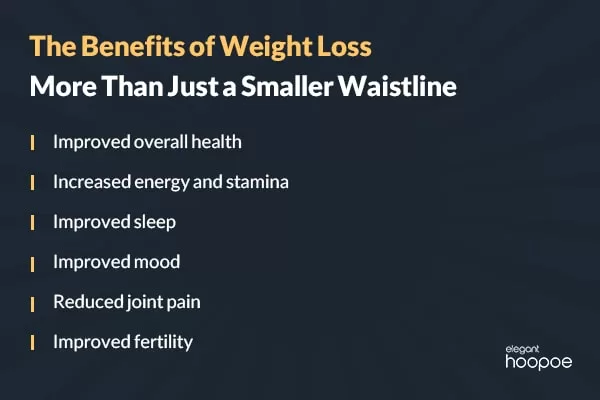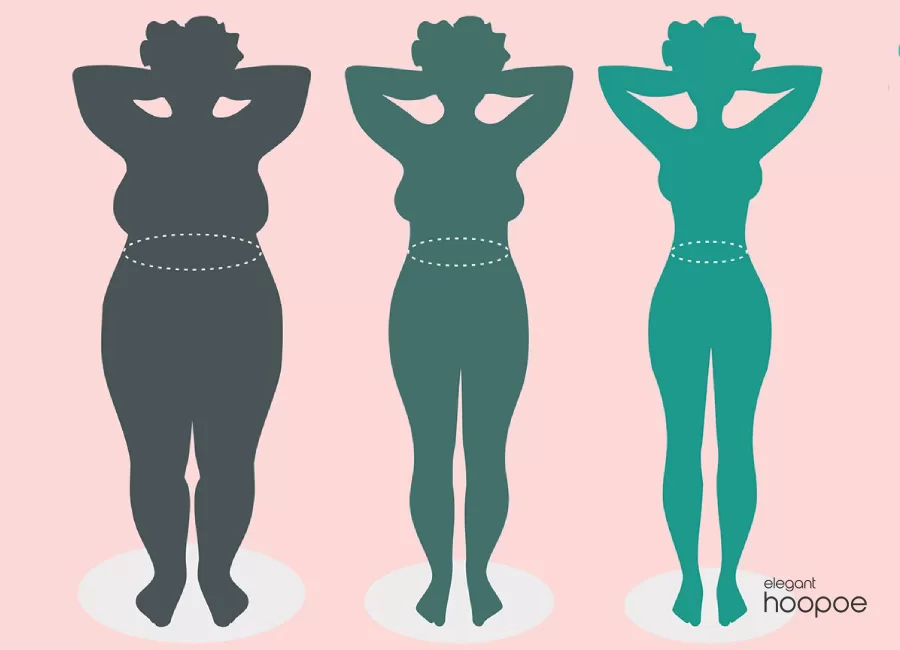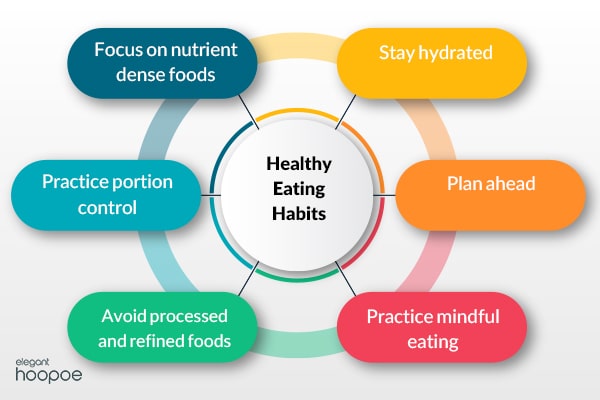Losing weight is a common goal for many people, whether it’s for health reasons, to feel more confident in their appearance, or to simply improve their overall quality of life. With so many fad diets and weight loss products on the market, it can be difficult to know where to start. However, the truth is that sustainable thinness requires a combination of healthy eating habits, regular exercise, and lifestyle changes. In this article, we’ll explore the science behind this process and provide practical tips and advice to help you achieve your goals.
Content List
- Basics and Fundamentals of Losing Weight
- What are The Benefits of Losing Weight?
- Main Stages of Weight Loss
- What are Some Healthy Eating Habits to Lose Weight?
- How important is Exercise for Weight Loss?
- Lifestyle Changes to Lose Weight More
- How To Burn More Fat and Increase Metabolism?
- What Are The Obstacles and Roadblocks
- Debunking Common Weight Loss
- Motivate Yourself to Lose More Weight
- Different Approaches to Lose Weight
- How to Keep Off the Weight?
Weight Loss Basics

Losing weight is a complex process that involves many biological, physiological, and psychological factors. At its most basic level, weight loss occurs when the body burns more calories than it consumes. This creates a calorie deficit, which can lead to a reduction in body weight over time.
To achieve weight loss, it’s important to understand the basics of energy balance. The body requires a certain amount of energy, or calories, to function properly each day. This energy is obtained through the food we eat and the beverages we drink. When we consume more calories than our body needs, the excess calories are stored as fat.
To lose weight, we need to create a calorie deficit by consuming fewer calories than our body needs or increasing our physical activity to burn more calories. For example, reducing calorie intake by 500 calories per day can lead to losing weight of approximately 1 pound per week.
However, it’s important to note that losing weight is not solely about calorie counting. The quality of the foods we eat and our overall dietary patterns also play a significant role in losing weight and overall health. Consuming nutrient-dense foods, such as fruits, vegetables, whole grains, lean protein, and healthy fats, can provide the body with the necessary nutrients for optimal functioning and support weight loss efforts.
In addition to diet, physical activity is also an important component of weight loss. Regular exercise can increase energy expenditure, build muscle mass, and improve overall health. Combining healthy eating habits with regular exercise can create a sustainable approach to losing weight that can lead to long-term success.
Overall, understanding the basics of energy balance and adopting healthy lifestyle habits can support successful weight loss and overall health.

Health Benefits
Improved overall health
Losing weight can lead to a variety of health benefits, including improved blood pressure, cholesterol levels, and blood sugar control. It can also reduce the risk of chronic diseases such as heart disease, diabetes, and certain types of cancer.
Increased energy and stamina
Carrying excess weight can make physical activity more difficult and draining. Losing weight can improve your energy levels and increase your stamina, making it easier to be active and engage in daily activities.
Improved sleep
Weight loss can lead to improved sleep quality and reduce sleep apnea symptoms, which can contribute to better overall health and well-being.
Improved mood
Carrying excess weight can take a toll on mental health and self-esteem. Losing weight can improve self-confidence and overall mood, leading to better mental health and well-being.
Reduced joint pain
Losing weight can reduce the strain on joints, particularly in the knees and hips, leading to reduced pain and improved mobility.
Improved fertility
For those struggling with infertility, losing weight can improve hormonal balance and increase the chances of conception.
Lower the risk of Back Pain and lumbar disc
One the Main reasons behind back pain and lumbar disc is our own body weight! Being overweight and obese can lead to lumbar disc as our spine is handling more weight than it should which overtime will have some severe effects on our spine discs health. So losing weight is one of the best ways to prevent this excruciating pain.
Losing weight is anti-depressant
Depression can have multiple reasons and one the most common ones is not being healthy enough over not having enough body positivity, now while it is encouraged to love the body the way it is, you should know that by losing weight and getting in the best shape of your body, you are not only preventing many diseases but also you are fighting depression. Since the whole process of weight loss is mostly associated with exercise, you will feel much more positive about yourself even after the very first session of working out.
Better sex life for men and women
Men can fight erectile disfunction by keeping themselves at an ideal healthy body weight, losing weight is also good for women sex life as we have already explained.
By achieving and maintaining a healthy weight, you can experience a variety of physical and mental health benefits that contribute to overall wellness and well-being. There are other health benefits if weight loss that you can read more about in this article
Stages of Losing Weight

The stages of weight loss can vary from person to person, but generally, there are several stages that most people go through:
- Precontemplation: In this stage, individuals may not be aware that their weight is a problem or they may not yet be ready to make a change.
- Contemplation: In this stage, individuals are starting to consider the idea of weight loss and may be thinking about the benefits and drawbacks of making a change.
- Preparation: individuals are getting ready to make a change and may start to set goals and develop a plan for achieving them.
- Action: In this stage, individuals are actively making changes to their lifestyle, such as following a healthy diet and engaging in regular physical activity.
- Maintenance: In this stage, individuals have achieved their weight loss goals and are working to maintain their new habits and prevent relapse.
- Relapse: In this stage, individuals may experience setbacks or slip-ups and may need to recommit to their weight loss goals.
The process of losing also can be divided into two stages :
Rapid Weight Loss Stageat
This is the first stage of losing weight and people tend to lose more at this level. Most people can see and feel their body transformation after one month. Most of the weight lost at this stage is water, protein and carbohydrates and it is unlikely to lose notable fat at this level. It is reported that low carb dieters tend to see more changes in this stage due to the fact that their body is obtaining the required energy from the carbs it has stored.
Slow Weight Loss Stage
The second stage changes occur at a much slower pace, but the good news is that the majority of the lost weight is going to be fat cells. It is also common to see people get stuck at a certain weight for some time which is called a weight loss plateau. It is highly recommended to keep exercising and to follow a good diet at this stage as your body is building more muscles and losing more fat at the same time that is why the rate of losing weight is slower that expected.
It’s important to note that weight loss is not always a linear process and individuals may move back and forth between these stages. The key is to stay committed to the goal and to develop a support system that can help you navigate the challenges along the way.

Healthy Eating Habits
Healthy eating habits are essential for successful weight loss. While there is no one-size-fits-all approach to healthy eating, there are some general guidelines that can be helpful.

Focus on nutrient-dense foods
Nutrient-dense foods provide the body with the necessary vitamins, minerals, and other nutrients for optimal health. These include fruits, vegetables, whole grains, lean protein, and healthy fats.
Practice portion control
While consuming nutrient-dense foods is important, it’s also important to practice portion control. Eating too much of any food, even healthy foods, can lead to weight gain. Use smaller plates, measure out portions, and pay attention to feelings of fullness to avoid overeating.
Avoid processed and refined foods
Processed and refined foods are often high in calories, sugar, and unhealthy fats, and can contribute to weight gain. Try to limit or avoid these foods as much as possible, and instead opt for whole, minimally processed foods.
Stay hydrated
Drinking plenty of water can help support weight loss efforts by promoting feelings of fullness and reducing calorie intake. Aim to drink at least 8 cups of water per day. It is also important to lower the consumption of beverages with high calories and dairy products with high fat levels.
Plan ahead
Planning meals and snacks ahead of time can help prevent impulsive, unhealthy food choices. Try meal prepping or keeping healthy snacks on hand to avoid reaching for less healthy options.
Practice mindful eating
Mindful eating involves paying attention to the sensory experience of eating, including the taste, texture, and smell of food. This can help prevent overeating and promote a more enjoyable eating experience.
By adopting healthy eating habits, you can support successful weight loss and improve overall health.
The Role of Exercise

Exercise plays a crucial role in both weight loss and weight maintenance. Regular physical activity can help create a calorie deficit, which can lead to weight loss over time. Additionally, exercise can help build and maintain muscle mass, which can support weight loss efforts by increasing metabolic rate and improving body composition.
For losing weight, both aerobic exercise (such as running, cycling, or swimming) and resistance training (such as weightlifting or bodyweight exercises) can be effective. Aerobic exercise can help burn calories and improve cardiovascular health, while resistance training can help build muscle mass and improve strength.
When it comes to weight maintenance, regular exercise is essential for preventing weight regain. Studies have shown that people who successfully maintain weight loss over the long term typically engage in at least 150 minutes of moderate-intensity exercise per week. This can include a combination of aerobic exercise and resistance training.
In addition to its effects on weight loss and maintenance, exercise also has numerous other health benefits. It can help reduce the risk of chronic diseases such as heart disease, diabetes, and certain types of cancer. Exercise can also improve mood, reduce stress, and improve the overall quality of life.
To incorporate exercise into a weight loss or maintenance plan, it’s important to find activities that are enjoyable and sustainable. This may include activities such as walking, hiking, swimming, or group fitness classes. Setting realistic goals, tracking progress, and seeking support from friends, family, or a healthcare professional can also be helpful.
Overall, regular exercise is an important component of both weight loss and weight maintenance and can provide numerous health benefits beyond just weight management. Here’s a list of best exercises to lose weight
Lifestyle Changes
Sustainable weight loss is about making long-term lifestyle changes that support healthy habits and a healthy weight. Fad diets or quick fixes may result in short-term weight loss, but they are not sustainable and often lead to weight regain. Instead, focus on making gradual, sustainable changes to your diet and physical activity habits.
Focus on whole foods
Instead of focusing on calorie counting or restrictive diets, aim to eat a variety of whole foods such as fruits, vegetables, whole grains, lean protein, and healthy fats. These foods provide important nutrients and fiber that can support weight loss and overall health.
Incorporate physical activity
Regular physical activity is important for both weight loss and overall health. Find activities that you enjoy and can sustain over time, such as walking, jogging, or group fitness classes.
Manage stress
Stress can contribute to overeating and unhealthy food choices. Finding ways to manage stress, such as through meditation, yoga, or deep breathing exercises, can support sustainable weight loss.
Get enough sleep
Lack of sleep has been linked to weight gain and obesity. Aim for 7-8 hours of sleep per night to support weight loss and overall health.
Moderate Alcohol consumption
Drinking alcoholic beverages can affect the efforts you make to lose weight negatively. Alcoholic drinks have high calorie and consuming them is going to have other side effects such as hangovers. Also people are more likely to overeat after they have some shots of alcohol.
Aim for variety
It is crucial to eat variety of foods to provide your body with all sorts of nutrients it needs. So do not get stuck on eating a certain set of foods and try to add more diversity to your diet.
Seek support
Making lifestyle changes can be challenging, and seeking support from friends, family, or a healthcare professional can be helpful. Joining a weight loss support group or working with a registered dietitian or personal trainer can also provide guidance and accountability.
By making sustainable lifestyle changes, you can support long-term weight loss and overall health. It’s important to remember that weight loss is a journey and not a destination and that sustainable habits take time and patience to develop.
How to Increase Fat Burning and Metabolism?!
Here are some tips for increasing fat-burning and metabolism:
Build muscle
Strength training can increase muscle mass, which in turn can increase metabolism and fat burning. Aim to include strength training exercises at least two to three times per week.
Eat enough protein
Protein is important for building and repairing muscle tissue, and can also help to increase metabolism. Aim for at least 0.8 grams of protein per kilogram of body weight per day. What are some Fat burning foods ?
Drink green tea
Green tea contains caffeine and antioxidants that may help to boost metabolism and increase fat burning.
Stay hydrated
Drinking enough water can help to keep metabolism functioning optimally.
Get enough sleep
Lack of sleep can disrupt hormones that regulate metabolism and hunger, so aim for at least 7-8 hours of sleep per night.
Incorporate high-intensity interval training (HIIT)
HIIT can increase metabolism and fat burning more effectively than steady-state cardio.
As we said chronic stress could increase levels of the hormone cortisol, which can lead to weight gain and a slower metabolism. Incorporate stress-reducing activities such as meditation or yoga into your routine. Remember, sustainable weight loss and a healthy metabolism require a balanced approach that includes healthy eating habits, regular physical activity, and self-care practices.

Obstacles of Losing Weight
Weight loss can be a challenging journey, and there may be obstacles along the way that can make it difficult to stick to healthy habits. Here are some tips and strategies for overcoming common obstacles to weight loss
Lack of time
Many people struggle to find time for healthy eating and physical activity. To overcome this obstacle, try scheduling workouts and meal prep into your calendar, or find ways to incorporate physical activity into your daily routine, such as taking the stairs instead of the elevator.
Physical limitation and injuries
Physical limitation and disorders are another common reason as to why some people might not be able to lose weight naturally by exercise. Injuries are also quite common for people who regularly work out and during their recovery time, weight gain is possible.
Social pressure
Social situations, such as eating out or attending parties, can make it difficult to stick to healthy habits. To overcome this obstacle, try planning by looking at menus before going out to eat or bringing a healthy dish to a party.
Emotional eating
Many people turn to food for comfort or as a coping mechanism for stress or other emotions. To overcome emotional eating, try finding other ways to manage stress, such as through exercise or meditation, or seek support from a therapist or support group.
Plateaus
It’s common to hit a plateau in weight loss, where progress slows or stops altogether. To overcome a plateau, try mixing up your exercise routine or adjusting your diet to include more whole foods and fewer processed foods.
Lack of motivation
Sometimes, it can be difficult to stay motivated on the weight loss journey. To overcome this obstacle, try setting realistic goals and celebrating small victories along the way. Surrounding yourself with a supportive community, such as a support group, can also provide motivation and accountability.
Medical conditions
Certain medical conditions, such as thyroid disorders or PCOS, can make it difficult to lose weight. To overcome this obstacle, it’s important to work with a healthcare professional to develop a personalized plan that takes your medical condition into account.
Not having a plan
losing weight is a long-term game and it requires dedication and time. without planning out how your are going to approach your goals, it is unlikely to see any results in the long run. so plan ahead what you are going to eat and how you are going to do your work out sessions.
You can develop sustainable habits and achieve your goals by identifying and overcoming obstacles. Remember that small steps and consistent effort can lead to long-term success.
Common Weight Loss Myths

Myth: You need to cut out all carbs to lose weight.
Reality: Carbohydrates are an important part of a healthy diet and cutting them out completely can be unsustainable. Instead, focus on incorporating whole grains and fiber-rich carbs into your diet. Here’s a list of the best diets for losing weight in 2023 according to dietitians.
Myth: Eating small, frequent meals throughout the day boosts metabolism.
Reality: While eating small, frequent meals can help some people feel more satisfied and avoid overeating, it doesn’t necessarily boost metabolism. What matters most for weight loss is total calorie intake over the day.
Myth: You can spot and reduce fat in specific areas of the body.
Reality: You can’t target fat loss in specific areas of the body through exercise or diet. Fat loss occurs throughout the body as a whole.
Myth: Drinking green tea or taking certain supplements can magically help you lose weight.
Reality: While green tea and certain supplements may have some health benefits, there is no magical solution for weight loss. Sustainable losing weight requires a combination of healthy eating and physical activity habits.
Myth: You need to do intense workouts to lose weight.
Reality: While intense workouts can be effective, any form of physical activity can contribute to overall calorie burn and weight loss. Find activities that you enjoy and can sustain over time.
Myth: Eating fat makes you fat.
Reality: Eating healthy fats, such as those found in nuts, seeds, avocados, and fish, can support weight loss and overall health. The key is to focus on healthy sources of fat in moderation.
By understanding and debunking common weight loss myths and misconceptions, you can make informed decisions about it and develop sustainable habits that support your overall health and wellness.
How to Stay Motivated and Stick to Your Goals
Set realistic goals
Setting realistic and achievable goals can help you stay motivated and avoid feeling overwhelmed. Instead of focusing on losing a large amount of weight quickly, aim for small, sustainable changes that you can maintain over time.
Find you’re why
Understanding your motivation for wanting to lose weight can help you stay focused and committed. Whether it’s to improve your health, feel more confident, or set a positive example for loved ones, having a clear why can provide the necessary drive to stick to your goals.
Celebrate small victories
Celebrating small victories, such as hitting a weight loss milestone or sticking to a healthy eating plan for a week, can provide a sense of accomplishment and motivation to keep going.
Find an accountability partner
Having someone to share your weight loss journey with can provide support and accountability. Whether it’s a friend, family member, or online community, find someone who can help you stay on track and motivated.
Reward yourself
Treat yourself to non-food rewards when you reach milestones or achieve your goals. This can help reinforce positive habits and provide motivation to continue.
Focus on progress, not perfection
Remember that there will be ups and downs along the way. Instead of striving for perfection, focus on progress and celebrate the small wins along the way.
By staying motivated and committed to your weight loss goals, you can develop sustainable habits that support your overall health and wellness. Remember that consistency and small changes over time can lead to long-term success.
Different Ways to Lose Weight
Calorie restriction
This approach involves reducing your daily caloric intake through a balanced diet that includes nutrient-dense foods. This method can be effective for those who can maintain a consistent calorie deficit over time.
Intermittent fasting
This approach involves alternating periods of fasting with periods of eating, and can be done in various ways. Some people may find it easier to adhere to a restricted eating schedule, while others may struggle with extended periods of fasting.
Low-carb diets
This approach involves limiting your intake of carbohydrates and increasing your consumption of protein and healthy fats. Low-carb diets can be effective for some people in achieving weight loss goals, but may not be sustainable or suitable for everyone.

Meal replacements
This approach involves using pre-packaged meals or shakes to replace one or more meals per day. Meal replacements can be a convenient option for some people, but may not provide the same nutritional value as whole foods.
Physical activity
Increasing your physical activity level through exercise and movement can support weight loss goals and improve overall health and well-being. This approach may require more time and effort than others but can have long-term benefits beyond just thinness.
surgical and non-surgical options
another common method to lose weight is to undergo different surgeries such as liposuction but these methods are not suitable for most people and you can only do them if your doctor approves them. also, weight loss surgeries are not recommended to people who have a BMI less than 30.
On the other hand there are non-surgical and non-invasive new techniques to lose weight. There are multiple devices in the market that can effectively destroy fat cells in different parts of the body and, they do not have severe or considerable side effects and almost everybody is eligible to undergo those types of treatments.
When choosing a weight loss approach, it’s important to consider your individual needs and preferences, as well as any underlying health conditions or dietary restrictions. Consulting with a healthcare professional or registered dietitian can also help you find a safe and effective approach that works for you. Remember that it takes time and effort, and may require a combination of different approaches to achieve success.

How to Keep off The Weight?
Develop healthy habits
Focus on establishing healthy habits that support your weight loss goals, such as regular exercise, a balanced diet, and stress management techniques. Incorporate these habits into your daily routine to make them a permanent part of your lifestyle.
Track your progress
Regularly monitoring your weight and progress can help you stay motivated and make adjustments to your plan as needed. This can include tracking your food intake, physical activity, and weight over time.
Stay accountable
Find support from friends, family, or a support group to help keep you accountable and motivated. Consider working with a registered dietitian or personal trainer to help you stay on track and make any necessary adjustments to your plan.
Celebrate your successes
Celebrate your successes and the healthy habits you’ve established along the way. Reward yourself with non-food treats, such as a massage or a new workout outfit, to help reinforce your positive progress.
By adopting these strategies, you can increase your chances of maintaining your weight loss and achieving long-term success. Remember that maintenance may require ongoing effort and commitment to maintain your progress over time.
Concluding Remarks
In conclusion, weight loss can have significant benefits for overall health and well-being, including reducing the risk of chronic diseases and improving quality of life. However, sustainable weight loss requires a combination of healthy eating habits, regular physical activity, and lifestyle changes supporting long-term success.
It’s important to choose an approach that works for your individual needs and preferences and to seek support from healthcare professionals or support groups as needed. Remember that weight loss is a journey that may require ongoing effort and commitment to achieve and maintain your goals. With the right mindset and strategies, this journey can be a rewarding and life-changing experience.
If you are looking for professional support in your journey, consider visiting our slimming clinic in Dubai, Jumeirah 2. An Elegant Hoopoe team of experienced healthcare professionals is dedicated to helping you achieve your goals safely and effectively. We offer a variety of customized programs, including nutrition counseling, exercise plans, and medical weight loss treatments.
Our clinic is equipped with state-of-the-art facilities and equipment to ensure that you receive the highest quality of care. Contact us today to schedule a consultation and take the first step towards a healthier and happier you!







